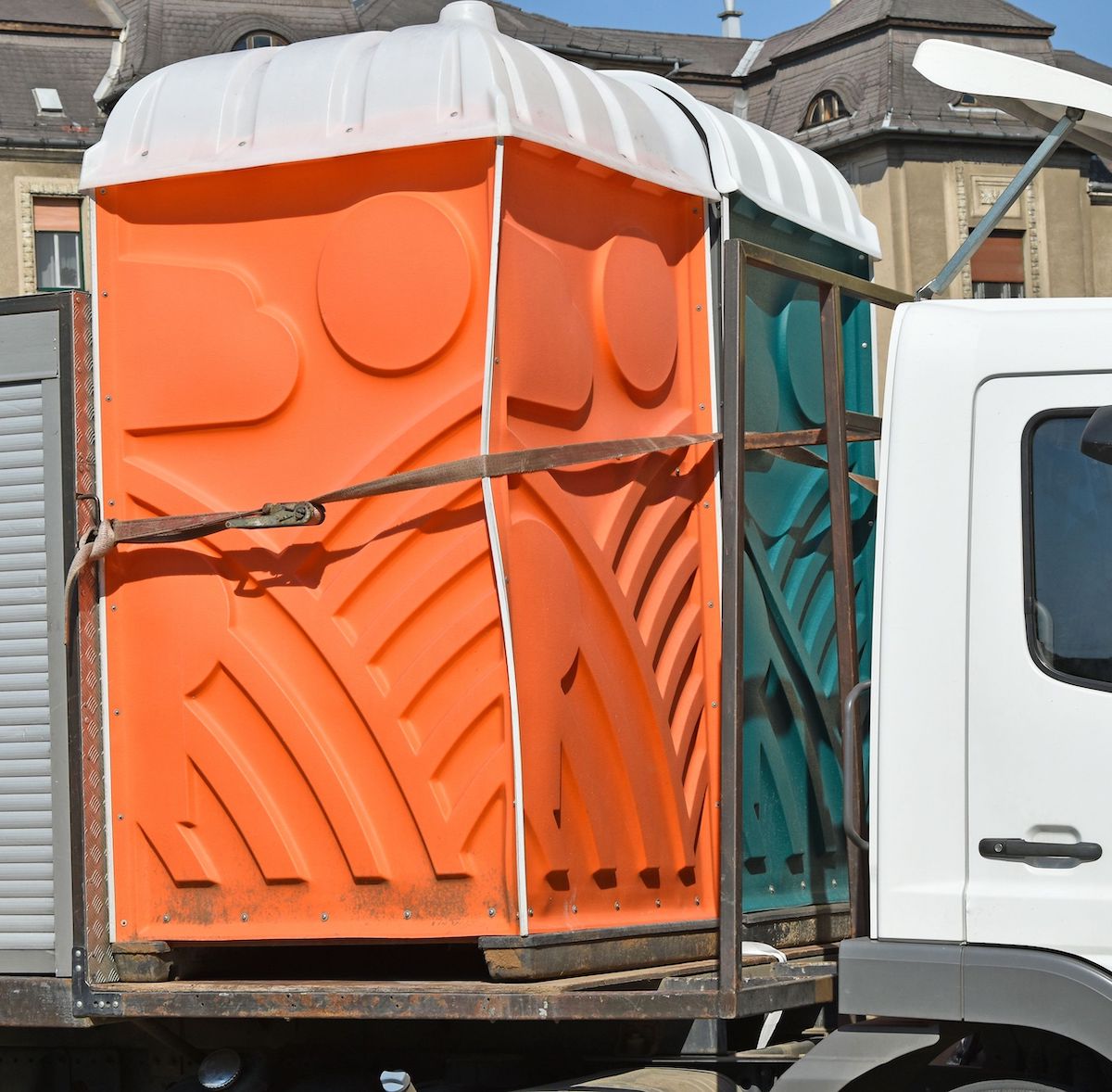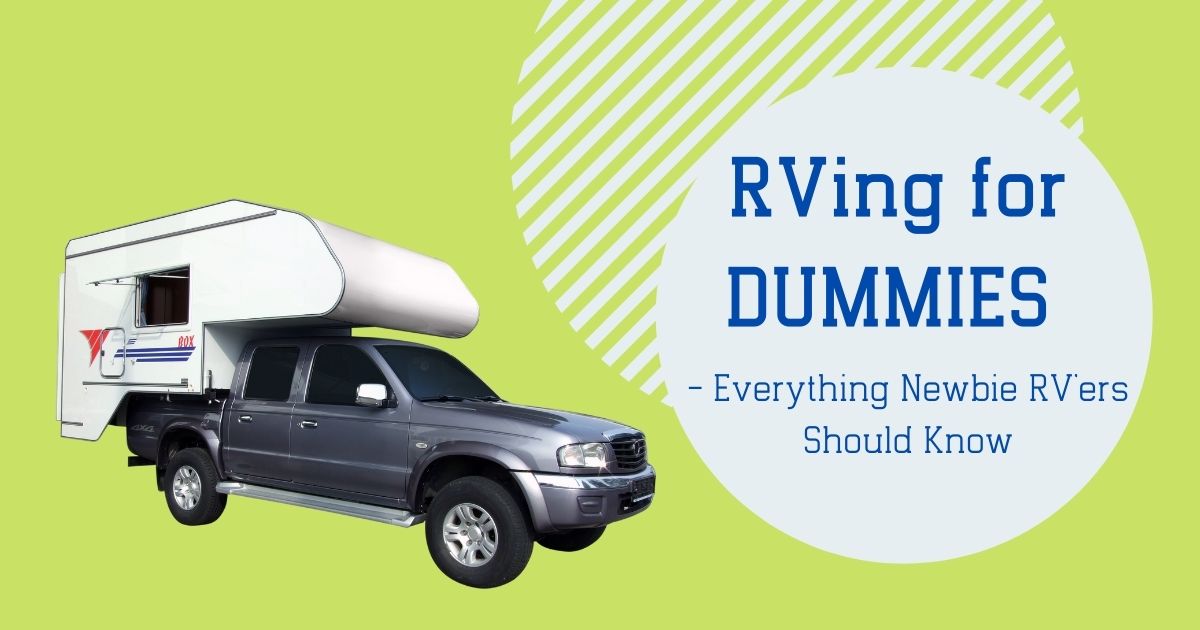RVing for dummies is the perfect guide for anyone who wants to learn more about recreational vehicles. It’s packed with information on getting started, what equipment you need, where to go, and much more. You’ll be an expert in no time.
This guide will give you tips on what kind of vehicle would best suit your needs. You’ll learn where to go, and which things to look out for, as well as how much money it takes (and saves!) each year, compared to other modes of travel like cars or planes.
You’ll also find helpful information about insurance, safety precautions, and more! There’s no better way than by RVing for dummies!
Staying Organized Is of Vital Importance
One of the most critical aspects of RVing is staying organized. This means having a well-thought-out plan and packing the right supplies. Ensure you have everything you need before hitting the road, including food, water, first-aid supplies, tools, and emergency gear. And don’t forget to pack your sense of adventure– you’re in for a fantastic time.
One of the best things about RVing is that it can be as adventurous or relaxing as you want it to be. You can explore new places and make new friends, or simply stay put in one spot and enjoy the views. The choice is yours!
The Different Types of RV Toilets
There are three main types of RV toilets– the cassette toilet, the porta-potty, and the black water tank. A cassette toilet is a self-contained unit that stores everything inside the toilet itself.
The porta-potty is a portable toilet that can be dumped when full, while the black water tank collects all the waste from the toilet and sink.
The cassette toilet is the cleanest option available, but you need to empty it regularly. On the other hand, Porta-potties are the easiest since you can dump them easily at any waste station along your route, but they tend to smell due to lack of ventilation.
Blackwater tanks are more expensive than porta-potties, but they don’t have any odors and can easily be dumped.
No matter which type of toilet you choose, always make sure to practice good hygiene habits and keep your RV clean! This will help to prevent any nasty smells from developing and make your trip more pleasant for everyone involved.

How to Be RV Prepared and Traveling Safely
RVing is becoming an increasingly popular way to travel. However, planning and preparation are required to be an enjoyable experience. These suggestions can help you avoid any issues on your trip, whether you’re new to RVing or not.
Learn How to Drive the RV You Plan to Use
Before hitting the open road, you must be familiar with driving your RV. This will help ensure a safe and smooth journey.
Familiarize Yourself with the RV Equipment
In addition to learning how to drive your RV, it is also essential to be familiar with all its equipment. This will help you troubleshoot any issues that may arise while on your trip.
Plan Your Itinerary Carefully
It is essential to carefully plan your itinerary before embarking on an RV trip. This will help avoid any stressful situations or problems later on.
Make Sure You Have the Necessary Supplies
Before departing on your trip, ensure you have all the necessary supplies to ensure a pleasant journey. These include food and water, first-aid supplies, tools, and emergency gear.
Take Your Personal Life into Consideration
Make sure to consider your family’s personal needs before planning your trip. This will help make sure everyone has a great time on their adventure.
RV Insurance and Road Service
RVing can be fun, but it is essential to be prepared for the unexpected. This includes ensuring you have the proper insurance and road service in an emergency.
Many people choose to purchase full-coverage RV insurance before embarking on their trip. This will help protect you in case of any accidents or damage to your vehicle.
Check Road Conditions, Construction, and Closures
One of the hazards of RVing is that road conditions can change quickly and without warning. It is essential to check for road closures, construction zones, and other potential hazards before departing on your trip.
Reservations
It is essential to make reservations for all of your destinations before taking off on an RV trip. This will help reduce any frustrations or stress during your journey.
Wildlife and Your RV
One of the joys of RVing is getting up close and personal with nature. However, it is crucial to be aware of the dangers posed by wildlife.
Raccoons, skunks, and bears are just a few of the animals that can cause problems for RVers. It is vital to take precautions against these animals by storing food securely and keeping your campsite clean.
Weather
Weather can be an issue for anyone, but they are essential to keep in mind when RVing.
Winter storms and tornadoes are two of the most dangerous weather changes that can occur while you’re on the road. Make sure you know how to prepare in case these conditions arise.
Electrical Load
It is vital to make sure you have enough amps to power all your appliances and equipment at once. You can determine how many amps you need by looking at the total wattage for everything plugged in.
Practice Driving Your RV Before Leaving on a Trip
This will help ensure everyone gets a feel for driving an RV before embarking on their trip. This will also give first-time drivers some practice time behind the wheel, which will be beneficial if they’re new to operating larger vehicles.
Weight of the RV
It is essential to be aware of the weight of your RV before embarking on a trip.
This is especially important if you travel on roads that have weight restrictions. You can determine how much your RV weighs by checking the owner’s manual or contacting the manufacturer.
RV Checklist for Beginners
It is essential to ensure you have everything packed before leaving on your trip. This will help avoid any problems or issues during the journey.
Rving checklists for beginners are essential for planning an RV trip. They can include making sure you have all the necessary supplies, packing food for your destination, checking tire pressure, and more.
Wi-Fi and Mobile Internet
One of the great things about RVing is that you can take your office and the internet with you wherever you go.
However, it is crucial to be aware of the different types of internet access available to you while on the road. This includes cellular data, satellite internet, and WiFi.
By following these tips for beginners, you can help ensure a safe and enjoyable RVing experience for everyone involved!

RV Clubs and Memberships
If you want to take your RVing experience to the next level, joining an RV club or another membership service might be a good idea. These groups can offer everything from travel advice and destination ideas to discounts on camping fees and other amenities.
There are different RV clubs and membership services to choose from, so it is essential to do your research before signing up. Some of the most popular clubs include Good Sam Club, Escapees RV Club, and Family Motor Coach Association.
How to Get Parcels and Mail While Traveling
Traveling can be great, but it can also create unique challenges for getting your mail.
The good news is that you don’t have to miss out on any of the critical deliveries while you’re on vacation. Read on to learn more about how RVers get their mail and parcels while traveling.
Businesses – Campgrounds/RV Parks/Hotels
If you stay at a business that offers a mail pick-up service, they will usually have a secure area for holding parcels and letters. In the same way, many businesses that provide post office boxes will also keep your mail if you tell them in advance that you’re going away.
You can also rent private P.O. Boxes from places like The UPS Store or Mailboxes Etc., but keep in mind these locations might not be willing to hold your mail without advanced notice.
Additionally, most offices of FedEx and UPS locations will release your packages to you or hold them until you return from traveling as long as they know about it beforehand.
General Delivery U.S. Postal Service
General Delivery is a service offered by the U.S. Postal Service that allows customers to pick up their mail at any post office in the country when they are away from home.
You can find out if there is a General Delivery location near you by visiting USPS’ online directory or calling 1-800-ASK-USPS (1-800-275-8777). This service isn’t going to be an option for everyone, but if it’s available, it could make getting your mail and parcels much easier while you’re traveling.
Friends and Family Members
In many cases, friends and family members can hold your mail when you’re on the road. They don’t have to be home for this, so it’s a good idea to ask ahead of time or have them check with someone who is at their house regularly if anything comes up.
Many post offices will also hold packages received by friends and family, but keep in mind they can only do this if they know about the arrangement in advance.
Additionally, many gas stations are starting to offer mailbox services that you can use while passing through town or waiting for other packages.
Amazon Lockers
If you’re an Amazon Prime member, you might want to take advantage of Amazon’s locker service. These are self-service kiosks located in various places around the country that allow customers to pick up and drop off their Amazon packages.
This could be a great option if you’re traveling through an area where you don’t have any family or friends that can hold your mail for you. To find an Amazon locker near you, visit their website and enter your zip code or city name.
Businesses – Campgrounds/RV Parks/Hotels
If you’re a traveling business owner, it might be a good idea to get in touch with your local campgrounds and RV parks. They may assist you by holding your parcels until you return from traveling.
Packages Received While Camping
If you are expecting parcels while camping somewhere without private delivery options, you can try some things- just make sure it hasn’t already been dropped off before doing any of these things.
If it’s the post office holding your parcels, find out how close you are to the next closest post office and make a day trip there to pick up everything in person. If someone else is holding your mail for you, call or stop by their home/office to see what they can do for you.
Private delivery companies like UPS and FedEx can hold parcels at local facilities if they know about it ahead of time. Still, overnight locations might not be willing to take on this responsibility without notice.
Why RV Health Insurance Is Key
One question that is not often asked, but should be, is what happens if you have a health emergency while RVing?
Your regular health insurance might not cover you if something happens outside your home state, and even if it does, there might be a limit to how much they will pay.
This is why RV health insurance is such an important consideration– it can help prevent huge expenses if something happens while you’re on the road.
There are many different RV health insurance policies available, so it’s essential to research and find one that fits your needs.

Getting the Best Out of Your RV
If you have a newer or custom-made RV, it’s essential to regularly maintain and take care of it so that you can get the most out of your vehicle. This can prevent your RV from breaking down or from requiring extensive repairs.
Some everyday things to watch are tire pressure, fluid levels around the engine compartment, battery voltage, etc. This will help prevent any issues while driving, which could cause problems for other vehicles or pedestrians nearby.
Anybody working on it has to be knowledgeable about the necessary safety procedures.
Place huge absorbent mats under any jacks or stands when your equipment is lifted off the ground, for example.
Few things are more frustrating than having your lovely RV fall off a jack and shatter or damage part of the body panels.
One more tip is to consider installing a Bluetooth/wireless speaker system in your rig compatible with most smart devices (iPhones, Android phones, etc.). That way, you can play movies, music, books, and answer phone calls from inside your vehicle without having to wear headphones or earbuds all the time.
This will make passenger rides much more enjoyable for everyone and help pass the time while traveling.
Is the RV Lifestyle Expensive?
One of the first things that come to mind for many RV newbies when they think about RVing is that it must be an expensive lifestyle to maintain. While this may be true for some people, there are also many ways to save money while on the road.
One way is by cooking your food instead of eating out all the time – this can not only save you money, but it can also be a lot healthier for you.
Another option is to boondock or dry camp where possible; this can help you save on campsite fees and generator usage if you have one.
Several discount programs and memberships are available to RVers, like Passport America, which can help save even more money.
Full Time RVing vs. Par Time RVing
Another question that often comes up is whether it is better to full-time RV or just do it part-time.
This depends on your personal preferences and situation.
Full-time RVing can be a great way to see the country while living in your own comfortable home, but it can also be expensive if you’re not careful. Part-time RVing can be a more affordable option, but it does limit how much you get to see and travel.
Ultimately, the choice is yours, but it’s crucial to weigh the pros and cons of each before making a decision.
Other RV-Related Considerations to Take
When committing to purchasing and driving an RV, there are a few other things you must take into consideration. Satellite and cable television signals are not consistently available for most RVs. Depending on where you’re going, you can utilize free Wi-Fi hotspots around the United States, including at all McDonald’s locations, but this is not always a guarantee.
Cell phone reception is also spotty in specific areas; if you plan on using your phone as your primary mode of communication on the road, be sure to do some research ahead of time on what providers have the best service in the areas you’ll be traveling.
Another essential factor to consider is storage. RVs can be bulky and take up a lot of space, so if you’re not comfortable with having limited storage options at home, an RV may not be the best option for you. Additionally, RVs can be quite costly to maintain, so it’s important to make sure you have the financial resources in place to cover potential repairs or upgrades down the road.
Our Take Home Message
The bottom line is that there are many RV tips and tricks for beginners to consider when it comes to RVing. By doing your homework and planning ahead, you can make the experience smoother and more enjoyable for everyone involved. So, get out there and start exploring – the world is waiting for you!
